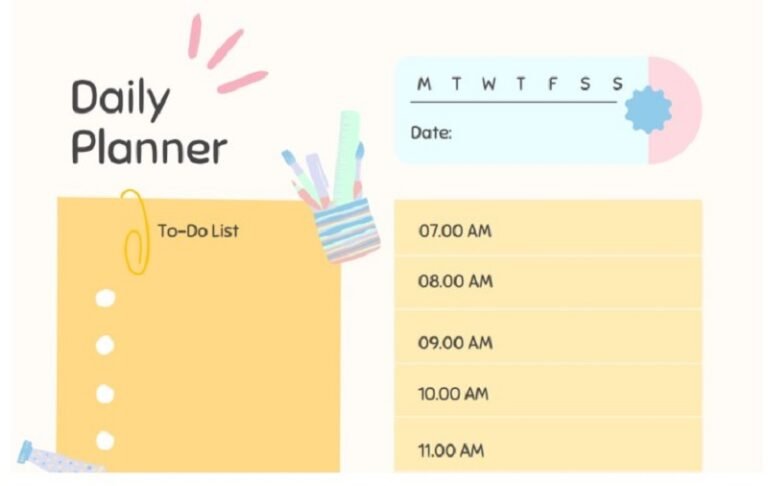Empower Your Bond: Essential Tips for Conflict Resolution in Relationships

Understanding Relationship Conflict
Conflict is just part of the package deal when you’re in a relationship. Knowing how conflicts affect us and where they come from can make the rough patches a bit smoother to get through.
Impact of Conflict in Relationships
Fights and disagreements can shake up a relationship in all sorts of ways, both right away and further down the road. When you don’t handle conflicts well, it can brew into resentment and a backpack full of unresolved junk. Keep butting heads without a solution for too long, and you might even see your health and life span taking a hit (Verywell Mind). Watch out for the nasty communication habits like crossed arms or a harsh tone—anything that can pour gas on the fire (Utah State University Extension).
Table: Impact of Unresolved Conflict
| Impact Level | Effects |
|---|---|
| Short-Term | Frustration, Anger, Misunderstanding |
| Long-Term | Resentment, Health issues, Relationship Deterioration |
Figuring out how to hash things out peacefully is super important. Couples need to learn the ropes of good old conflict resolution strategies, and actually use them here’s how.
Root Causes of Conflict
Getting to the heart of why the fights start is essential when you’re trying to fix things up. Every couple’s got their triggers, and these often spring from personal stuff or the unique dance you do in your relationship (Verywell Mind).
Common Root Causes of Conflict
- Money Problems: Different ideas on spending, saving, or finances in general.
- Lack of Affection or Intimacy: Feeling ignored or not loved in the ways that matter to you.
- Childcare Decisions: Disagreements on how to raise the little ones.
- Leisure Time Activities: Clashes over how to spend time off together or apart.
- In-Law Issues: Boundaries or getting along with the extended fam can be tricky.
Table: Root Causes of Relationship Conflict
| Cause | Description |
|---|---|
| Money Problems | Disagreements on financial decisions and spending habits |
| Lack of Affection | Unfulfilled emotional and physical intimacy needs |
| Childcare Decisions | Variances in parenting methods and responsibilities |
| Leisure Time Activities | Differences in preferences for spending free time |
| In-Law Issues | Conflicts related to extended family interactions and boundaries |
Self-esteem, values, expectations, life goals, time spent together versus alone, and who holds the reins in decision-making are often part of the mix too (Utah State University Extension). Nailing down these origins in arguments can help couples sort out their mess and come out stronger with better communication skills.
Wanna dig deeper into how solid communication can keep disagreements from blowing up? Check out our piece on effective communication in relationships. Also, finding the right communication styles in relationships can help you figure out the best way to handle conflict.
Conflict Resolution Strategies
Conflict resolution ain’t rocket science, but it’s pretty close when it comes to keeping the peace at home and work. You know, it’s that magical potion that keeps arguments from blowing up like a shaken can of soda.
Importance of Conflict Resolution Skills
You can’t underestimate these skills. Without them, drama in personal relationships could spill over into work and other areas, turning life into an endless soap opera (Verywell Mind). The trick? Being real and open when you talk, keeping those emotions in check, and trying to see things from the other person’s angle.
When couples get the hang of this, there’s less of that “walk-on-eggshells” vibe, more mutual respect, and a tighter bond. It’s like trust-building boot camp for relationships—essential for dealing with squabbles and creating stronger trust.
Techniques for Resolving Conflict
Let’s break down some tactics that can keep conflict on a leash:
Using “I” Statements
Swapping “You always blow things up!” for “I feel frustrated when things escalate” can defuse accusations. It’s like taking the sting out of your words.
Active Listening
Active listening isn’t just nodding while scrolling through Insta. It’s about tuning in, really getting what the other person is laying down, and responding wisely. This skill is a heavy-hitter in conflict resolution and has its own dedicated section here.
Seeking Compromise
Being open to compromise shifts the focus from winning to finding a deal that works for everyone. It’s about building relationships on solid ground and coming out of conflicts stronger (Everyday Speech).
Having a Third Party Present
Sometimes, calling in a neutral player—like a counselor—can help. They can cut through the mess and guide both sides to a clearer understanding.
Using Time-Outs
When things start to get hot under the collar, a “time-out” isn’t just for kids. Walking away gives folks a breather to cool down and come back ready to talk it out.
Recognizing Unsuccessful Efforts
If patch-up attempts keep hitting a dead end, maybe it’s time to take a hard look at the relationship itself. Are these talks going anywhere, or is it time to rethink things? (Verywell Mind)
| Technique | Description |
|---|---|
| “I” Statements | Share feelings minus the blame |
| Active Listening | Truly hearing what’s said |
| Seeking Compromise | Finding common ground |
| Third-Party Mediation | Bringing in an unbiased listener |
| Time-Outs | Cooling-off period |
| Recognizing Limits | Knowing when it’s not working |
Polishing up those conflict skills can flip the script in any relationship story. For more on running smoother conversations, check out our take on boosting communication smarts.
Effective Communication in Relationships
For lovebirds trying to keep that spark alive and iron out any wrinkles, chatting is where it’s at. A solid partnership thrives when communication flows like a river, helping couples feel closer and sort out squabbles without pulling hair.
Role of Healthy Communication
Good talk keeps things smooth in the long run. Great communication not only pumps up that lovey-dovey feeling, but it also helps with clearing the air on those sticky misunderstandings. When things get tense, saying stuff like, “I feel annoyed when…” instead of the blame-game “You never listen to me” can calm the storm and turn it into a chill convo. Owning up when you’re wrong? That’s a grown-up move that can patch things up quicker than you can say “oops.”
| Communication Trick | What It Looks Like | Why It Helps |
|---|---|---|
| “I” Messages | “I feel ignored when you check your phone at dinner.” | Lowers defenses |
| Empathy | “I get why you’re upset.” | Knock-knock, who’s there? Understanding! |
| Taking the Blame | “Yep, I messed that up.” | Shows you’re all about growing |
Instead of aiming to “win” every argument, scoring a middle ground where everyone’s happy is the secret sauce to keeping things cool.
Active Listening in Relationships
Giving undivided attention when someone speaks can totally transform a disagreement into a resolution party with actual confetti. You listen, you get it, and respond, and folks feel the love.
Here’s the game plan:
- Look at the person and pay attention like they’re spilling your secrets.
- Toss in some words now and then—”I see”, “Right”.
- Chew over what’s been said and spit it back in your own words.
- Let the person finish without butting in.
- Show you’ve got heart with your hands, face, and voice.
Picture Sarah and John bickering about who’s doing what at work. By sitting down and truly listening to one another, they can uncover what’s really bugging them instead of barking like dogs at a fence. This way, everyone ends up with warm fuzzies and a sense of worth.
| Active Listening Bit | What’s Involved |
|---|---|
| Full Focus | Chuck the distractions, and pay attention. |
| Verbal Nods | Say “Got it” or “True that” to show you’re with them. |
| Paraphrasing | Repeat in your own words to confirm understanding. |
| No Interrupts | Bite your tongue until they’re done. |
| Show Empathy | Let your face and gestures say “I get you”. |
To polish up those chit-chat skills, check out our piece on improving relationship communication skills. Understanding various communication styles in relationships is another gem that can ramp up how you both gab.
Conflict in Family Relationships
Ah, family ties—can be both a warm hug on a cold day and a complicated tangle you can’t quite unravel. Why do family conflicts pop up so often? Let’s highlight some culprits and tips on how to keep the peace, or at least prevent metaphorical food fights at the dinner table.
Sources of Family Conflict
Family disputes are like annoying relatives who show up uninvited—they can appear anytime, anywhere. What’s drumming up all this drama?
- Money Matters: Money isn’t just paper and coins—it’s loaded with feelings and stories. Whether it’s debating who should pay for mom’s nursing care or who inherits grandpa’s baseball card collection, financial spats can brew lifelong grudges.
- Family Businesses: Ever try mixing business and family? Yeah, it’s like making lemonade with vinegar. Throw in clashing ideas over who gets the CEO chair or who makes the big bucks, and you’ve got a recipe for courtroom dramas and awkward Thanksgiving dinners.
- In-Law Tensions: In-laws can add spices or headaches to family life. Bickering over holiday plans, family dinners, or that notorious mother-in-law’s meatloaf? Not as fun. Marrying into a family often means marrying into opinions and habits you didn’t know existed.
- Family Events: You’d think parties are all about fun. Wrong. Watch as budgets, seating plans, or the sheer drama of Aunt Edna’s dance moves turn smiles into frowns faster than burnt toast.
- Support for Aging Parents: Dealing with aging parents is tough. Siblings can squabble over nursing homes or visiting schedules, leaving hearts feeling heavier than a stuffed Thanksgiving turkey.
Managing Conflict with Family
Got family grievances as welcomed as a cold in summer? Here’s a few ways to handle those stormy seas without capsizing the family boat.
- Open Communication: Give everyone a chance to share their side of the story without ducking for cover. Talk it out—hand gestures optional. That warm, fuzzy family feeling? Yeah, it starts with honest words.
- Active Listening: Stop, look, and listen. Capture what they’re saying like a detective solving a mystery. By acknowledging feelings and thoughts, solutions might just sneak up and surprise you.
- Neutral Mediators: When things get extra sticky, recruit a neutral peacekeeper—think family therapist rather than your loud uncle. A fresh perspective can heal old wounds or at least help avoid more drama.
- Setting Boundaries: Know where to draw the line—or color it in bold stripes. Discuss what’s off-limits, from business blunders to money matters, so fireworks aren’t always on the agenda.
- Seeking Compromise: Don’t just dig your heels in—wear flip-flops. Being flexible can transform mountains into molehills. Getting together over stuff like mom’s favorite mac and cheese recipe might be more possible than you think.
- Focus on Shared Goals: Remember why you even gather around the table. Staying glued by common aims—whether it’s mom’s happiness or the family bakery’s success—works miracles.
Using these pointers can transform conflict into calm, bringing a sense of togetherness that feels a little bit like home. So, when family friction creeps in, remember these tricks to dust off those disagreements. Happy family, happy life, right? For more thoughts on nurturing smoother family dynamics, check out some tips on communication styles in. relationships.
Compromise in Relationships
Alright, so let’s chat about compromise and its magic in making relationships friskier and popping those bubble wars. It’s like the secret sauce in transforming those “I’m right, you’re wrong” scenarios into a cozy way of bonding and boosting love life.
Significance of Compromise
The role of compromise is as crucial as finding the last parking space at a crowded mall. It’s the glue that helps keep the peace and makes yelling matches more of a rare spectacle. No wonder it’s like the MVP of good vibes in couples, sealing the deal on a friendly and understanding vibe.
Virtues of compromise include:
- Empathy and Understanding: Think of it as a mini-trip into someone else’s shoes. When you sidestep your own stubborn streaks, suddenly there’s this wave of “Oh, I feel ya!” alongside warm fuzzy vibes.
- Problem-Solving Skills: If creativity had a cousin, it would be compromise. Because finding a path where both can stroll together? That’s Problem Solving 101, useful not just in love but where the paycheck comes from too.
- Respect and Commitment: Dipping your toes into the compromise pool is like throwing little love notes of respect towards your partner. It’s saying, “Hey, you matter,” without uttering a single word.
Benefits of Compromise
When compromise steps into the ring, relationships start boogeying on cloud nine. Here’s why making room for it is a smart move:
- Chills Out the Tension: Before things heat up to a full-blown spat, compromise swoops in to cool the air. Make peace, not war? Absolutely! Speaking of it, check the cool tactics here.
- Talk It Out Champer: It’s like verbal yoga. Your chats become more about sharing and less about nose flaring. More on becoming a chat maestro can be found here.
- Respect on Repeat: It’s about building an empire on give-and-take, making sure no one feels shortchanged. So, that reciprocity thing? Yeah, it builds undying respect.
- Closer by the Minute: Each compromise is one step closer, like cuddles after a long day. Smaller sacrifices yield unsaid words of love, building that rock-solid bond.
| Benefit | Description |
|---|---|
| Chills Out the Tension | Fewer squabbles, more rainbows and sunshine |
| Talk It Out Champer | A haven for honesty and open dialogue |
| Respect on Repeat | The currency of real partnership |
| Closer by the Minute | Love’s needle and thread, sewing hearts together |
So, there you have it! In the world of relationships, compromise is like that underrated pop song with a catchy tune. It sets the rhythm right for an ace partnership where both hearts get louder—you just gotta hum along with it. Loving these tips? Swing by here to step up your talk game!
Conflict Resolution in Couples
Arguing now and then is kind of like the salt in the soup of any relationship—it adds flavor, but too much can ruin the whole dish. Mastering the art of resolving conflicts without turning them into a barbecue brawl helps not only in keeping things peaceful but also in deepening the connection between partners. This part tackles some nifty ways to handle couple’s tiffs so both parties can walk away from the table feeling more like partners and less like contenders.
Achieving Win-Win Outcomes
The magic of aim-for-win-win in resolving arguments lies in making sure both partners walk away feeling seen and appreciated. Not only does this keep the relationship growing, but it also steers clear of harboring bitterness or unspoken grudges. PositivePsychology.com spills the beans that a win-win outcome is about finding ways to make both happy campers.
| Way | What It’s About |
|---|---|
| Team-Up Problem Solving | Tackling problems together to hit shared targets, so there’s something in it for everyone. |
| Give and Take | Both go the extra mile to strike a deal that’s fair for both sides. |
| Walk in Each Other’s Shoes | By understanding each other’s perspective, couples can climb onto the same page. |
Strategies for Healthy Resolutions
A good playbook of strategies can help couples muddle through tough waters with fewer bruises and more hugs. Luckily, some foolproof methods have proven to get the job done (Verywell Mind).
Open and Honest Communication
Spilling the beans with honesty is vital to nip conflicts in the bud. Partners should lay bare their feelings, wants, and annoyances without dodging each other’s glances. This candid exchange breeds trust and makes sure problems don’t gather dust under the rug. For tips on talking straight, drop by our article on effective communication in relationships.
Active Listening
Really tuning in when your partner spills their guts involves sorting the words, not just hearing them fly past you. Understanding what they’re saying helps clear the air and shows you’re in their corner. Here’s how to be an A+ listener:
- Look them in the eye
- Nod or drop a “right” or “uh-ha”
- Repeat back what they said to make sure you’re both on the same wavelength
Getting this down pat is crucial for smooth conflict solving and gets more face time in our write-up on active listening in relationships.
Keeping Your Cool
Remaining cool as a cucumber during heated moments is key to not hitting DEFCON-5. It’s okay to call a time-out if things heat up and circle back when the dust settles. This plays down the risk of letting words fly that sting more than was intended.
Seeking Professional Help
Sometimes, bringing in the big guns can help guide couples through choppy waters. Couples therapy or a chat with someone who’s been trained to help can throw in some handy tools and tips to keep disagreements constructive. Plus, it offers a safe arena for partners to spill what’s on their minds.
Emphasizing Compromise and Flexibility
Being ready to meet halfway is like oil to the engine of long-term relationships. Each partner should shake up their views and bend a little to land on a win-win solution (Verywell Mind). Being open to change prevents stubborn lock-in and helps nurture an environment full of respect and willingness to give-and-take. For further reads on the upsides of compromise, take a peek at our piece on compromise in relationships.
By slotting these tactics into daily life and gunning for win-win situations, couples can not only tackle friction efficiently but also pave smoother paths to a bond that’s stronger, healthier, and happier. For sprinkling a bit more savvy on your chat skills, wander over to our article on improving relationship communication skills.
Active Listening in Conflict Resolution
Active listening is the secret sauce in sorting out disagreements within relationships. By leaning into this approach, couples can chat with each other a whole lot better and sort out their issues with less hassle.
How Active Listening Makes Conflict Resolution Better
Active listening isn’t just nodding along; it’s about really zoning in, getting what they’re on about, replying thoughtfully, and remembering what they said. This is a big deal for fixing conflicts in relationships because it makes sure everyone feels like they’re being heard, smoothing over bumps along the way.
Active listening isn’t just for smoothing out personal tiffs. Companies that encourage it notice their employees are about 50% more satisfied, creating a workplace brimming with trust and teamwork. In tough negotiations, it can boost the happiness of all parties by 20% (Psico Smart). These professional wins translate well to personal life, as feeling valued can nip arguments in the bud, showing respect is a two-way street.
Here’s what active listening breaks down to:
- Empathy: Getting in your partner’s shoes, feeling what they do.
- Clarification: Throwing in questions here and there to fully grasp what they’re saying.
- Validation: Giving their feelings and point of view a nod.
When partners practice this, they’re not just talking—they’re building a zone of trust, making it easier to iron out issues. If you want to dig deeper, click over to our article on communication styles in relationships.
Putting Active Listening to Work
You can sprinkle active listening into any situation to tackle arguments better. Here’s how it shakes out in different areas:
Workplace
Over at a global tech company, they rolled out active listening among their leaders and bam—a 35% drop in squabbles and a 22% bump in workers feeling pleased as punch over six months (Psico Smart). General Motors also cranked up employee engagement stats by 15% after making sure their managers tuned into this method (Psico Smart).
| Company | Conflict Dip | Employee Satisfaction Boom |
|---|---|---|
| Global Tech Firm | 35% less | 22% uppity-uppy |
| General Motors | – | 15% rise |
Customer Service
Zappos, masters in customer service, used active listening and found customers were 50% more likely to sing their praises (Psico Smart).
Personal Relationships
At home, tuning into what’s being said can really lift trust-building in relationships. Couples who master active listening dodge misunderstandings more and seem happier overall. Infusing some good listening skills into disagreements can lead to chattier, more helpful outcomes.
| Place | Improvement Gain |
|---|---|
| Corporate | 50% happier owned |
| Customer Service | 28% more satisfied customers |
Couples, by giving active listening a serious shot, can unpack the real stuff going on in their relationships. Grasping these ideas means chumming along better and having rewarding chats. For more sweet tips, have a peek at our article on better relationship comms skills.
Successful Conflict Mediation
Being able to sort out disagreements with some style is nothing short of an art form. This is particularly true in relationships, where couples often find themselves stuck in the same old argument loop. Knowing how to listen, really listen, is a game-changer. Seriously, it can turn bickering into back-patting.
Active Listening in Conflict Mediation
Listening isn’t just nodding along like a dashboard bobblehead – it’s about soaking up what’s said and truly getting it. In conflict mediation, a little TLC in your listening can make a world of difference. It helps everyone feel like they’ve got a seat at the table, instead of being sent to the kids’ one.
Here’s how to nail it:
- Empathy: Show some heart. It’s not about agreeing, but it’s nice for someone else to know you get what they’re feeling.
- Clarification: Don’t just assume. Ask those questions that show you’re not just hearing words but understanding them.
- Validation: Let them know their feelings and thoughts aren’t flying off into the void, even if you don’t see eye-to-eye.
If you can master these, you’re on your way to smoothing out wrinkles in any conflict. Zappos gave this a go with their customers and saw a whopping 50% boost in recommendations just by lending an ear like a pro (Psico Smart). That’s the power of feeling heard, folks!
Real-Life Examples of Active Listening Success
Peeking into the world beyond the cozy couple bubble, active listening shines bright in some pretty snazzy ways.
Corporate Mergers: Think company giants striking deals. You know, the serious stuff! When they ditch the assumptions and really listen, deals feel 20% more satisfying (Psico Smart). It’s like clearing the air of pesky misconceptions and emotional storms leading to breakthroughs.
Johnson & Johnson: With a bit of empathy training, they cut complaints nearly in half – 55% to be precise. Management dialed up the listening skills, and it paid off big-time (Psico Smart).
CARE in East Africa: This gang took the listening lessons to heart too, boosting community thumbs-ups by 45%. Proves that paying attention makes the road a little less bumpy.
| Organization | Their Win | What Changed? |
|---|---|---|
| Zappos | Gained 50% | Thumbs-up in customer recommendations |
| Johnson & Johnson | Lost 55% | Down in complaints/queries |
| CARE | Up 45% | Approval in the community |
| General Motors | Up 15% | Happiness in employee engagement |
Application of Active Listening in Various Settings
Whether you’re in the boardroom or the bedroom, the big, undeniable pluses of active listening are clear as day. Take General Motors – after they got serious about it, their folks felt 15% more engaged at work (Psico Smart). It’s like bringing a fan to a stuffy room.
For couples, these same listening techniques can turn shouting matches into mutual appreciation societies. For an extra nudge on talking things through, check out our guide on improving relationship communication skills.
Let active listening light the way to happier ties and fewer sighs. Want more on keeping the peace? Swing by our take on effective communication in relationships.






